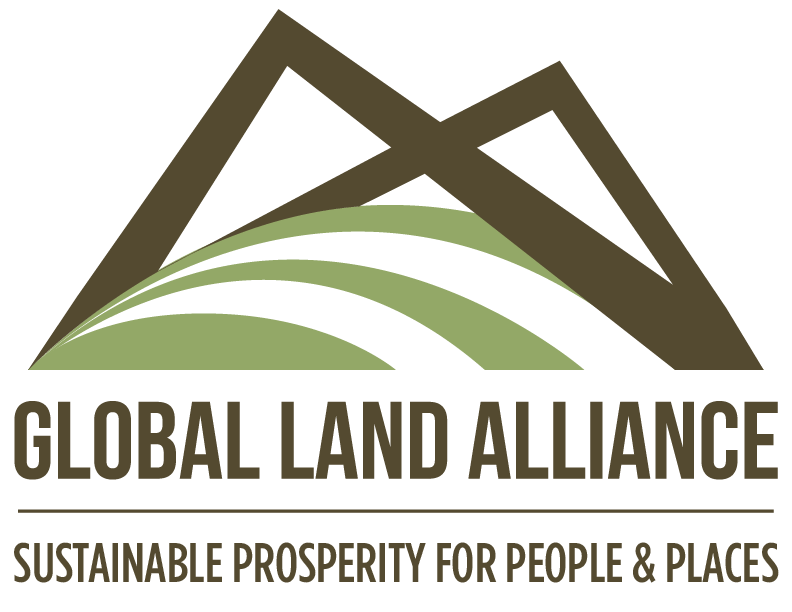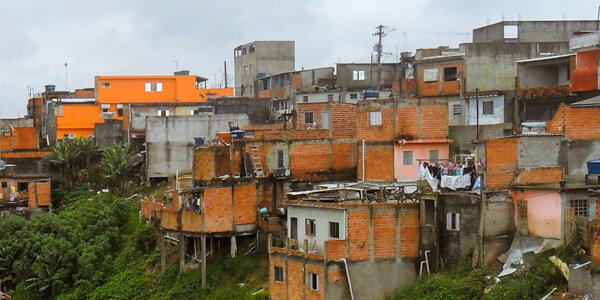Terra Nova: A Sustainable Solution to Tenure Security and Recognition for Favelas in Brazil
By: Selina Carter, Malcolm Childress, and Christen Corcoran
In Brazil and around the world, insecure property rights prevent families from feeling confident about the future, businesses from investing, and communities from becoming more productive and engaged in politics due to lack of recognition. Many residents of Brazil’s favela communities with informal legal recognition of property rights face such threats of insecurity or eviction. Terra Nova, a private social enterprise, is innovating an alternative financially sustainable, and scalable alternative solution to regularizing legal status and bringing infrastructure and services to favelas located on privately-owned land. By leveraging Brazil’s legal system and solving the complex coordination problem involved in negotiating a solution with occupants, the underlying private owners and the local government Terra Nova brings “owners and occupants”[1] into negotiated agreements to legally transfer property titles to occupants while compensating original owners at prices which are affordable to occupants.
"Terra Nova is a social enterprise that works with the mediation of human conflicts for Land Regularization of Social Interest in urban areas illegally occupied. Terra Nova makes the mediation between owners and occupants in the questions involving Agrarian Regularization, and pacifically settles conflicts related to land ownership, allowing that the families living in the place to obtain, through their own effort, the property right to the lots where they live, while the owners are indemnified for the loss of the property." –Terra Nova, About Us
This evenhanded approach has built up a proven track record of success: since its founding in 2001, Terra Nova has administered land ownership to 50,000 people in over thirty communities in four states. Now its goal is to massively expand the model across the country, accelerated by a partnership with GLA made possible by a grant from Omidyar Network, now PlaceFund.
Pictured: Daniel Albuquerque and Jaime Baez at Terra Nova offices in Curitiba, Brazil
Pictured: Daniel Albuquerque showing the infrastructural improvements of favela Jardim Israelense that have been made after Terra Nova’s process of recognition
Terra Nova is currently working in four states within Brazil
“Terra Nova’s model is proven to dramatically improve the lives of Brazilians benefiting from land regularization – and yet we’ve still just scratched the surface of its potential,” says André Albuquerque, Terra Nova’s founder. “Alongside Global Land Alliance, we hope to bring this innovative model to communities around Brazil and to share with the world our vast data trove on the impact of informal settlement agreements,” says Albuquerque.
How it works
What makes Terra Nova’s model so effective? It solves an otherwise impossible coordination problem between private owners, individual occupants, and local government. By law, private landowners have the right to repossession, and expropriation must be compensated. Evictions are expensive and socially conflictive for landowners to carry out, and municipal governments rarely have the funds of political will to expropriate and compensate original owners. So most favelas on private land muddle through, with occupants insecure, under-serviced, the original owners unable to resolve their claims, and municipal governments unable to install infrastructure and include the settlement into the fabric of the city . To remedy this situation, Terra Nova unites all parties and negotiates a financially sustainable roadmap for expropriation. With judicial authorization, Terra Nova serves as a financial intermediary and brokers a fair deal for residents, who purchase ownership of their property through monthly installments over ten years. In this way, occupants become title holders at an affordable rate, while the original landowners are compensated (typically at a discount from the assessed property value). In addition, Terra Nova allows land to be taxable by local governments. In turn, municipalities invest in infrastructure and services such as basic sanitation, electricity, paved streets, and public transportation.
The results for residents have been tremendous. As property owners, residents are entitled to formal lines of credit, helping improve their productivity. New sanitation and energy infrastructure, including over 21 km (13 miles) of water pipes and 20 km (12 miles) of electrical lines, has increased property values and quality of life in the settlements which have completed this process. In addition, the land regularization has triggered the construction of new schools, daycare centers, over a dozen community centers, and more parks and recreational spaces. Focus groups and household surveys indicate residents feel happier, have higher self-esteem, and experience a higher overall sense of well-being after Terra Nova’s intervention.
Project Vila Governador, Before v After Terra Nova intervention
Rosilda, a resident from Sao Paulo, comments, “We can be confident now, because before we were insecure. Before, we would hear rumors that they would kick us off.” Similarly in Rio de Janeiro, a city known worldwide for its favelas, a community elder said he once suffered insomnia from eviction threats. “Everything you did in life is invested in this structure,” he recounts. Thanks to Terra Nova, he now has a charter for his house and plot.
Scalability and future growth
Terra Nova Founder André Albuquerque and GLA Co-Executive Director Malcolm Childress make the partnership between their two organizations official and public Oct 2019 in Curitiba, Brazil
Terra Nova is now seeking to scale up. With support from the Omidyar Network-GLA grant it is designing an innovative social bond –an investment vehicle based on its receivables that that will support its socially conscious goals. By offering the social bond to new investors, Terra Nova will be able to use the new capital to expand to a wider set of settlements and a virtuous cycle of growth.
“We are excited about the potential global impact of this partnership, with the goal of solving housing and urban development challenges worldwide,” says Dr. Malcolm Childress, co-director of Global Land Alliance.
GLA is also working with Terra Nova to implement a set of organizational upgrades necessary to support this expansion and long-term growth. These include enhanced financial management tools and IT expertise, use of geospatial technology, a revamped marketing strategy focused on results, and more granular data analysis to help track impact on land value, incomes, and well-being. The payoff could be far-reaching, even multi-generational, for Brazil’s urban dwellers.
[1] Terms from https://grupoterranova.com.br/en/terranova/







